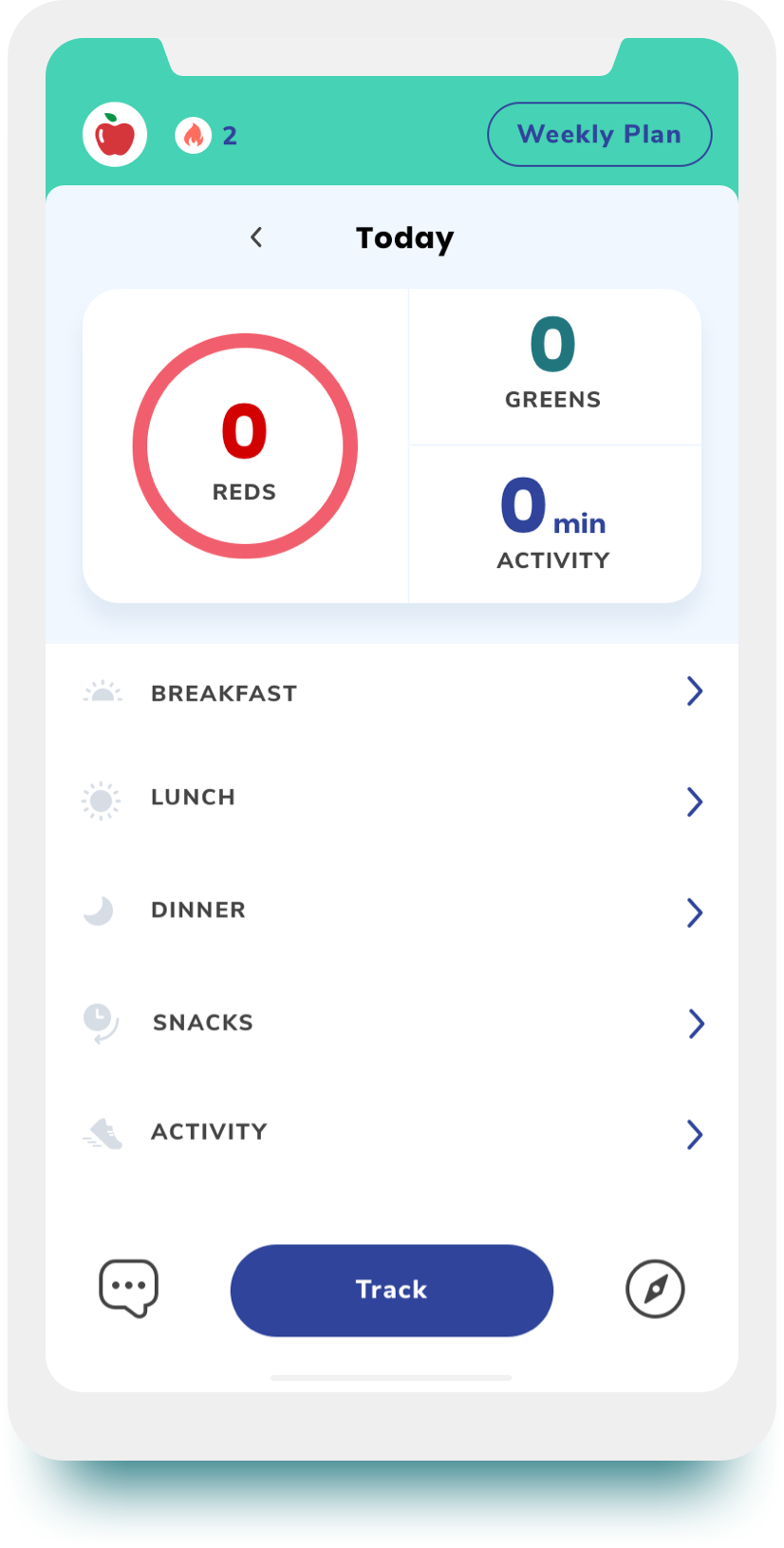The WW App for Kids Is Deeply Problematic for Me as a Mom
When Weight Watchers, now known as WW, relaunched itself as a wellness plan, it was met with optimistic skepticism. The WW app for kids, launched last week, however, has been met with downright outrage.
The brand has been synonymous with dieting for decades, but now that years of nutrition research has proved that diets don’t actually work, a pivot was welcome. But given the company’s new commitment to wellness, it seems an odd move to introduce a WW app for kids. Little kids. Like starting-at-eight-years-old little.
In case you missed it, the WW app is called Kurbo and it's aimed at children ages 8 to 18. The company maintains it's grounded in strategies for building healthy habits long-term—something nutrition science does support. “Kurbo focuses on behavior change for healthier eating and more activity, not dieting or calorie counting," Gary Foster, Ph.D., chief scientific officer at WW, told Glamour.
I, along with much of the internet, still find it problematic. The app has been met with pretty unanimous rage—check the comments on its Instagram feed—coding foods as green (“great to eat anytime”), yellow (“watch your portions”), or red (“think about how to budget them in”). But a bigger question begs to be asked: In the era of body positivity, when diet is literally a four-letter world, what message does this send to kids?

Putting your kid on a diet could set them up for disordered eating: In a study of 14- and 15-year-old girls, the National Eating Disorder Association found that “dieting was the most important predictor of developing an eating disorder.” Girls who moderately diet are five times as likely to develop an eating disorder—those who practice extreme restriction are 18 times (!) more likely. (Foster counters that studies show behavior-based weight-management programs like Kurbo "do not cause eating disorders. They provide kids with tools to make balanced food choices and manage their weight in a healthy way.”)
Can we think about the indignity of a teenager at a sleepover having to enter every morsel of food she eats into an app on her phone? Shame and guilt actually have a countereffect on any attempt at weight loss, according to the American Association of Pediatrics.
I suffered from disordered eating and bingeing for most of my adult life. Now that I have my own children, I want to save them from the toxic relationship with food that’s caused me so much grief. When we put children's eating habits under a microscope, we are taking away their agency over their own body. We are teaching them that they can’t possibly be left to their own devices to eat in a healthy way. And we are sending a loud and clear message: Your body is not good enough as it is. You need to be fixed.
I know the counterargument: "What about the epidemic of childhood obesity and all the problems that come with it?" I get that. But while people blame everything from lazy parenting and too much TV to processed foods, I believe one of the biggest culprits is trying to control and manipulate children’s eating habits before they can even read. We are all born with involuntary hunger cues that tell us when and what we need and want to eat. When you think about it, babies and young children really are the most mindful, intuitive eaters. They eat only what they want, when they want it. Then we adults come along, imposing our twisted value system and making kids start to question what their bodies really need.
Even in this era of body positivity, I’ve watched firsthand as parents berate children for eating Goldfish crackers or physically remove food from their plates. The worst part is, this often backfires; as any parent will tell you, when you start restricting a child from anything, whether it’s video games or cake, they only want more.
The goal for all of us should be for food to be neutral. No food is inherently good or bad and certainly no person is good or bad for eating a certain way. Of course, it’s important for children to be taught about nutrition and healthy, balanced meals, but it’s also okay for them to enjoy cookies and ice cream when they want. It’s not “cheating” or “being bad”; it’s just eating a food that brings you joy.
I think of Kurbo as more the result of all of this body-shaming insanity than the cause. Maybe part of the problem is that WW still carries the weight of so many years of flawed messaging about our bodies—it's hard not to see Kurbo as a diet app for kids. When we tell our children ad nauseam that they can be absolutely anything, does that include living in a bigger body? Can we be okay with that?
Being body positive doesn’t mean you have to love your body every day. No one does! But it does mean everyone—especially kids—gets autonomy over their own body. Our value and worth as a human has nothing to do with size. That’s really what our children need to hear from us, not that they need a weight-loss app.
Selene Milano is the founder of The Gain, a website covering women’s issues around food and their bodies. Follow her on Instagram @selene_milano.
Originally Appeared on Glamour

